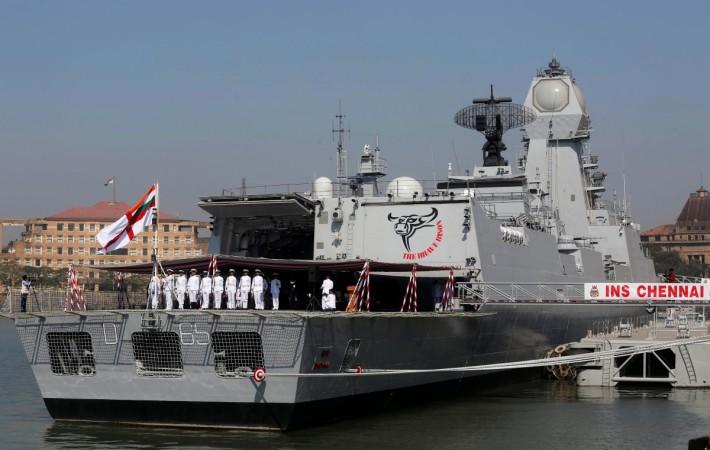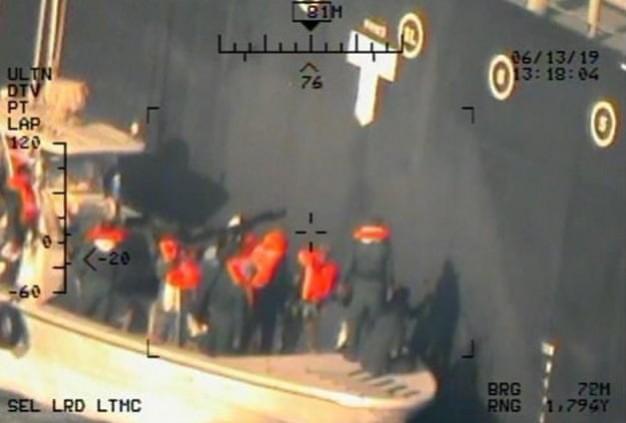
A week after two oil tankers were attacked in the Gulf of Oman region, the Indian Navy deployed two ships in the strategic oil route waters for the safe transit of Indian-flagged vessels, according to the Indian Defence Ministry.
The navy deployed INS Chennai and INS Sunanya on Thursday (June 20) as part of its strategic operation titled 'Sankalp' in the Gulf of Oman and the Persian Gulf "to undertake maritime security operations," said the statement by the Defence Ministry. Plans of conducting aerial surveillance of the area were also included in the statement.
On June 13, two vessels: a Norwegian goods carrier and a Japanese tanker were attacked in the Gulf of Oman region near the Strait of Hormuz, a major international oil trade route.
The tensions between the two countries flared after the US blamed Iran for its role in the attack, and released video and picture footages that showed Iran's Revolutionary Guard removing an unexploded limpet mine from one of the oil tankers attacked in the incident.

The shooting down of American RQ-4 Global Hawk by the Iranian defence for infiltrating the country's airspace has also added to the waging conflict between the two countries.
The US Federal Aviation Administration released an emergency order on Thursday after suspending all flight operations between Newark and Mumbai as it flies through the Iranian airspace. The order was issued after a safety review on the same day as the Iranian airstrike.
Trump calls off airstrikes on Iran
US President Donald Trump approved its defence for initiating retaliatory military strikes on Friday, June 21, against Iran. The New York Times reported that the president's approval was however pulled back before launching any military measures.
The escalation of tensions leading to a possible war between the two nuclear-armed countries has emerged as a major threat to many international defence security experts. The Pentagon's newly released US nuclear doctrine has also disturbed defence experts as it described nuclear attacks as a means to defend nuclear forces rather than objectives of defending the people and deterrence.
Iran has rejected all allegations and asserted that the country is responsible for maintaining the security of the Strait of Hormuz economic corridor.

















